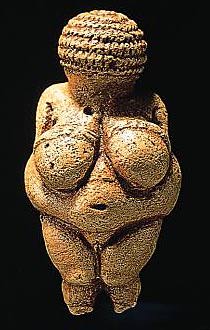
She changes everything She touches and everything She touches changes. The world is Her body. The world is in Her and She is in the world. She surrounds us like the air we breathe. She is as close to us as our own breath. She is energy, movement, life, and change. She is the ground of freedom, creativity, sympathy, understanding, and love. In Her we live, and move, and co-create our being. She is always there for each and every one of us, particles of atoms, cells, animals, and human animals. We are precious in Her sight. She understands and remembers us with unending sympathy. She inspires us to live creatively, joyfully, and in harmony with others in the web of life. Yet choice is ours. The world that is Her body is co-created. The choices of every individual particle of an atom, every individual cell, every individual animal, every individual human animal play a part. The adventure of life on planet earth and in the universe as a whole will be enhanced or diminished by the choices we make. She hears the cries of the world, sharing our sorrows with infinite compassion. In a still, small voice, She whispers the desire of Her heart: Life is meant to be enjoyed. She sets before us life and death. We can choose life. Change is. Touch is. Everything we touch can change.
One of the earliest insights of feminist theology was that women have been viewed as secondary or subordinate in dualistic anti-body traditions that follow Plato in making a sharp distinction between God and the unchanging soul on the one hand, and the changing body and nature on the other. Feminists have shown that in dualistic traditions created by men, the rational soul of man is associated with the unchanging immortal realm of (a male) God, while woman is identified with the body, nature, and death. Feminists have called this way of thinking hierarchical dualism because one set of qualities—the unchanging, the rational, the soul, the male—is valued more highly than the other—the changing, the natural, the body, the female. In such traditions, God must be imaged as male because maleness is associated with the soul and spirit. In such traditions God cannot be imaged as female because femaleness is associated with the body, nature, and death, and these in turn are imagined to be antithetical to the spirit.
Feminists in religion share a critique of the “God out there” of traditional biblical religion, agreeing that images of God as King, Lord, and Father are images of God as a dominant male other. In one of his last books, Omnipotence and Other Theological Mistakes, process philosopher Charles Hartshorne identified the six common mistakes of western theological traditions as the assertion of God’s omnipotence, omniscience, unchanging nature, and unsympathetic goodness, and the related errors of infallible revelation and immortality. Many feminists have focused attention on the masculine and hierarchical language of biblical traditions. We have not always been as clear that ideas about divine power as unchanging and unsympathetic, omnipotent and omniscient, and views of infallible revelation and immortality are integral to the understanding of God “out there,” separate from and above the world, that we criticize.
In She Who Changes: Re-imagining the Divine in the World, I argue that each of these “theological mistakes” results from a prior ontological mistake. This mistake is denial of the body that is based in a rejection of the female body through which we come into the physical world. In other words the “theological mistakes” are based in unacknowledged matricide. I believe that process philosophy is implicitly feminist because it provides an alternative to theological traditions that are rooted in unacknowledged matricide. Feminism’s contribution to process philosophy is to make the matricidal roots of traditional theologies explicit and to insist that process philosophy firmly root its concepts of “the body,” “the world,” and “the world as the body of God” in physical materiality. Process philosophy in turn can help feminists to avoid the theological mistakes that are part and parcel of a matricidal view of the world. These traditional ideas are so deeply engrained in language and culture that it is difficult for any of us to speak of Goddess or God without consciously or unconsciously repeating them unless we consciously replace them with a new paradigm.
*Adapted from Carol P. Christ, She Who Changes: Re-imagining the Divine in the World (New York: Routledge, 2004).
Carol P. Christ is a founding mother in the study of women and religion, feminist theology, women’s spirituality, and the Goddess movement. She teaches online courses in the Women’s Spirituality program at CIIS. Her books include She Who Changes and Rebirth of the Goddess and the widely used anthologies Womanspirit Rising and Weaving the Visions. One of her great joys is leading Goddess Pilgrimages to Crete through Ariadne Institute.
This essay was originally published in Feminism and Religion (http://feminismandreligion.com/2012/05/21/she-who-changes-by-carol-p-christ/)
